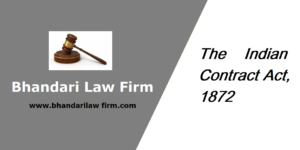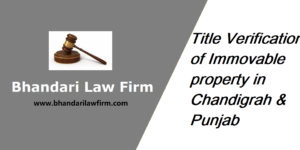Differences Between Appeal, Review And Revision
Before dwelling into the three branches of judicial review; appeal, review and revision; let us first understand the concept of judicial review in itself. Differences Between Appeal Review And Revision
The High Courts and Supreme Court has the authority and can declare null and void the acts of the legislature and the executive if they are found to be in conflict with the provisions of the Constitution. It is a method of examining the laws and actions in the light of their Constitutionality. Judicial review is the power of the highest court of a jurisdiction to invalidate on the constitutional ground, the acts of other Government agency within that jurisdiction. In the landmark case of Marbury v. Madison (I Cranch 137 (1803)), the Supreme Court held clearly that it had the power of judicial review. Differences Between Appeal Review And Revision
In India the constitutional supremacy and the court’s power of judicial review are held to be parts of the basic structure of the constitution in the cases of Keshavanand Bharti v. State of Kerala(AIR 1973 SC 1461) and Indira Nehru Gandhi v. Raj Narain,( AIR 1975 SC 2299) respectively.
The Differences Can Be Summed Up Between The Three; Individually
APPEAL:
The term appeal means to request earnestly. As in law it means a judicial request to the superior court to review any judgment of lower court. Differences Between Appeal Review And Revision
In the landmark of Nagendra Nath Dey vs. Suresh Chandra Dey (AIR 1932 PC 165) that, “there is no definition of appeal in the Code of Civil Procedure, but their Lordships have no doubt any application by a party to an Appellate Court, asking to set aside or reverse a decision of a subordinate court, is an appeal within the ordinary acceptation of the term.” Differences Between Appeal Review And Revision
THE SECTIONS IN CPC THAT DEAL WITH APPEAL:
- Part 7 of CPC; Sections 96 to 112 as well as Order 41 to 45 CPC deal with appeals.
- Sections 100 to 103 CPC deal with second appeals before High Courts and Sections 109 to 112 CPC deal with appeals to the Apex Court.
- Order 42 deals with second appeals to High Court and Order 45 deal with appeals to Supreme Court
- Chapter 13 of Civil Rules of Practice; Rules 166 to 171 deal with appeals.
An appeal is not an inherent power, but a right. It was held in Carilli v. Hersey (303 Mass. 82, 20 N.E.2d 492, 495), that, an appeal is a creature of statute, not a constitutional or inherent right. There is no right of appeal unless it is given clearly and in express terms by a statue. An appeal is a continuation of a suit as held in the case of Garikapati Veeraya vs. N. Subbiah Chaudhry (AIR 1957 SC 540).
In Dayawati vs. Inderjit (AIR 1966 SC 1423), the Supreme Court by, Hidayatullah, J., stated that, “an appeal has been said to be ‘the right of entering a superior Court, and invoking its aid and interposition to redress the error of the Court below’. The right of appeal is a substantive right and not merely a matter of procedural.
LIMITATION PERIOD
- The period of limitation for an appeal to a High Court from any decree or order is ninety days and the limitation commences from the date of the decree or order.
- The period of limitation for an appeal to any other Court from any decree or order is thirty days and the limitation commence from the date of the decree or order.
REVISION:
Revision power of the High Court is a power to rectify any mistake or error of law of the judgment given by the lower court. According to the Oxford English Dictionary, the term “revision” means, “the action of revising, especially critical or careful examination or perusal with a view to correcting or improving”.
It was held in the State Road Commission of West Virginia v. West Virginia Bridge Commission (112 W.Va. 514, 166 S.E. 11, 13), that “revision” means, “a re-examination or careful reading over for correction or improvement”. Revision is a discretionary remedy granted by a higher court to correctmiscarriage of justice.
Revision is not a continuation of the original proceeding but a distinct proceeding not the continuation. A revision is not a continuation of the original proceeding like an appeal.
Generally, in a revision, the question of law is considered by the court. Normally questions of facts are not considered by a court under its revision jurisdiction.
The code of Civil Procedure, 1908, has conferred the power of revision to the High Court Division for the purpose of correcting miscarriage of justice. Differences Between Appeal Review And Revision
(Click Here To Know About Differences Between Succession and Legal Heirs Certificate)
THE SECTION IN CPC THAT DEAL WITH REVISION:
Section 115: The code of Civil Procedure, 1908, has conferred the power of revision to the High Court Division for the purpose of correcting miscarriage of justice. Section 115 of CPC, 1908 has empowered the High Court Division to entertain a revision in any case decided by any subordinate court in certain circumstances. This jurisdiction is known as revision jurisdiction.
“Any case which has been decided” includes any order made, or any order deciding an issue, in the course of a suit or other proceeding. Section 115 confers power of revision on the High Court in a case not subject to appeal thereto.
It enables the High Court to correct, errors of jurisdiction committed by subordinate courts and provides the means to an aggrieved party to obtain rectification of a non-appealable order. In other words, for the effective exercise of its superintending and jurisdiction is conferred upon the High Court as held in the leading case of Major S. S. Khanna vs. Brig. F. J. Dillon. (AIR 1964 SC 497)
In Balakrishna Udayar v. Vasudeva Aiyar (44 Ind. App. 261 A.I.R. 1917 RC. 71); it includes a proceeding in a civil court in which the jurisdiction of the Court is invoked for determination of some claim or right legally enforceable.”
The provision of Order 22 of CPC, 1908, which is about the abatement of suit or proceeding, does not apply to revision application. A revision, therefore, does not abate on the death of the applicant or on account of failure on the part of the applicant to bring on record of the heirs of the deceased opponent as in Nathooram vs. Karbansilal (AIR 1983 AP 278) But in some rare circumstances a question of fact may be considered by the court too.
REVIEW
As defined by the oxford dictionary, review is “A formal assessment of something with the intention to institute a change if necessary”. The concept under the law actually goes in consonance with the stated description, having in addition the conditions for applicability, specific grounds along with other general rules.
THE SECTION IN CPC THAT DEAL WITH REVIEW
Under Section 114 of the Civil Procedure Code, review of a judgment passed by a lower civil court is a substantive right and Order XLVII prescribes the conditions and procedure to review a judgment. This article aims to explain this meaning and procedure of review under CPC.
By rule 1 of Order XLVII of the civil procedure code any person who is aggrieved by a decree or an order of a court and if one of the four aforesaid circumstances exists, then the person can file an application for the review of the decree or order. By Rule 5 of Order XLVII, if any decree or order is sought to be reviewed by a party to the suit, it can only be reviewed by the judge or bench (in case the original decree was passed by two or more judges) which passed the original decree or order. The rationale for this provision is that the term review indicates to look again.
In the case of Usha Rani v. Hardas Das (AIR 2005 Gau 01) the Guwahati High Court observed that what is an error apparent on the face of record depends on the fact and circumstances of each case. Later on, In Lily Thomas v. Union of India (AIR 2000 SC 1650) it was reiterated by emphasizing by the court that any reason can be any reason which the court believes to be sufficient to allow a review of the judgment provided that the reason is at least analogous to the provisions of Rule 1 Order XLVII.
In M.B. Catholicos v. M. Poulose (AIR 1954 SC 526) the apex court observed that after the acceptance of the review petition, the court proceeds with the process of rehearing the case. The decision of the court after rehearing the matter shall be binding on the parties concerned.
Note: This article was written by Ms. Richaa Mukhopadhyay, 4th Year Student of B.A. L.L.B, Amity Law School, Amity University, Kolkata. For more information or Query you may contact us.



